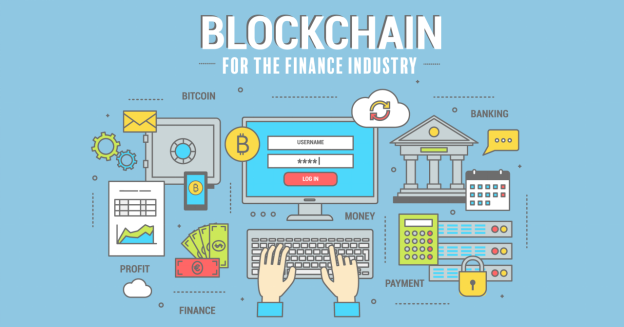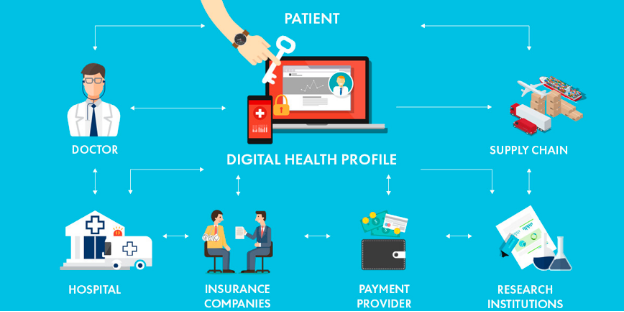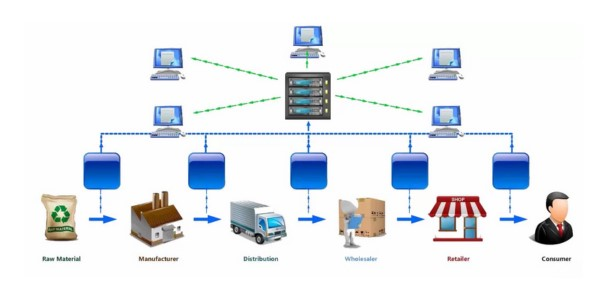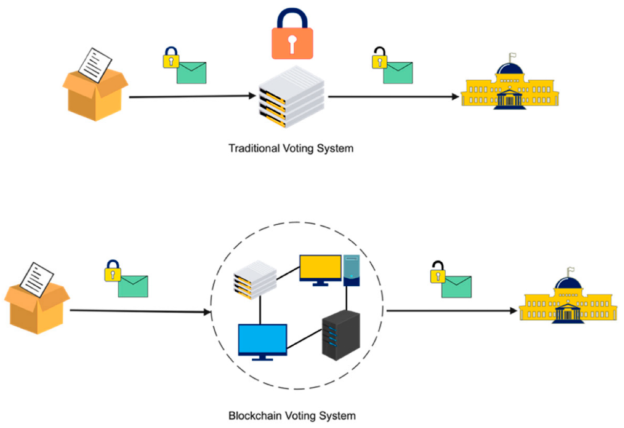Are you ready to step into the future and embrace the revolutionary power of blockchain technology? In 2024, it's imperative for businesses and individuals alike to recognize the immense potential that lies within this decentralized system. With its ability to securely store and transmit data, improve transparency, and provide immutable records, blockchain has the potential to transform various industries.
From finance and healthcare to supply chain management and voting systems, the applications of blockchain technology are vast and far-reaching. By adopting blockchain, businesses can streamline operations and increase efficiency, as demonstrated by The Blockchain Team's successful integration of blockchain solutions in various industries. Not only that, but the decentralized nature of blockchain eliminates the need for intermediaries, reducing costs and eliminating the risk of fraud.
In 2024, embracing blockchain technology is more crucial than ever. It's time to embrace the future and harness the power of this groundbreaking innovation. Stay ahead of the curve and explore the limitless possibilities that await by integrating blockchain into your business processes.
Join the movement and unlock a world of opportunities with blockchain technology in 2024. The future is now, it's time to embrace it.
The potential of blockchain technology in various industries
Blockchain technology has the potential to disrupt and revolutionize various industries. Let's take a closer look at some of the sectors that can benefit from embracing blockchain in 2024.
Finance

The financial industry is one of the prime beneficiaries of blockchain technology. Blockchain can enable faster and more secure transactions, eliminate intermediaries, reduce costs, and provide greater financial inclusion for the unbanked population. Smart contracts built on blockchain can automate processes such as loan approvals, insurance claims, and cross-border payments, making transactions more efficient and transparent.
Healthcare

In the healthcare sector, blockchain technology can enhance data privacy, security, and interoperability. By storing medical records on a decentralized ledger, patients can have complete control over their data, ensuring privacy and reducing the risk of data breaches. Additionally, blockchain can streamline processes such as supply chain management, clinical trials, and drug traceability, improving patient safety and overall healthcare outcomes.
Supply Chain Management

With blockchain, supply chain management can become more transparent and efficient. By recording every step of the supply chain process on a blockchain, businesses can track the origin, authenticity, and movement of goods in real-time. This technology can help reduce fraud, counterfeiting, and improve inventory management, ensuring trust and accountability throughout the supply chain.
Voting Systems

Blockchain technology can address the long-standing issues of transparency and security in voting systems. By recording each vote on an immutable blockchain, it becomes virtually impossible to manipulate or tamper with the results. This can lead to more trustworthy and transparent elections, ensuring the integrity of democratic processes.
Five key reasons to embrace blockchain technology in 2024
Now that we have explored the potential of blockchain in various industries, let's delve into the key reasons why embracing this technology in 2024 is crucial for businesses and individuals.
Increased security and transparency
One of the core features of blockchain technology is its ability to provide enhanced security and transparency. By storing data on a decentralized ledger, blockchain eliminates the risk of a single point of failure. Each transaction is cryptographically secured, making it nearly impossible to alter or manipulate. This increased security and transparency can help build trust among stakeholders, reduce fraud, and improve data integrity.
Streamlined and efficient processes
Blockchain has the potential to streamline and automate complex processes, leading to increased efficiency. Smart contracts, built on blockchain, can automatically execute predefined actions when certain conditions are met. This eliminates the need for intermediaries, reduces paperwork, and minimizes the chances of errors or delays. By embracing blockchain, businesses can optimize their operations, save time, and improve customer satisfaction.
Cost savings and financial inclusion
Blockchain technology has the potential to reduce costs and increase financial inclusion. By eliminating intermediaries and automating processes, businesses can significantly cut operational expenses. Additionally, blockchain can provide financial services to the unbanked population by enabling access to secure digital wallets and facilitating cross-border payments at a lower cost. This can help bridge the financial divide and empower individuals and businesses alike.
Decentralization and trust

Decentralization is a fundamental aspect of blockchain technology. By removing the need for a central authority, blockchain enables trust and transparency in peer-to-peer transactions. This can be particularly important in industries where trust is paramount, such as finance and supply chain management. Embracing blockchain technology can help businesses build trust with their customers, partners, and stakeholders, leading to stronger relationships and a competitive advantage.
Adoption challenges and considerations
While the benefits of blockchain technology are undeniable, it's important to acknowledge the challenges and considerations that come with its adoption. Integration with existing systems and processes, scalability, regulatory compliance, and data privacy are some of the factors that businesses need to carefully consider before implementing blockchain solutions. However, with proper planning and collaboration, these challenges can be overcome, and the rewards can be significant.
Increased security and transparency
If you're considering embracing blockchain technology in your business in 2024, here are some steps to get you started:
1. Identify the problem: Assess your business processes and identify areas where blockchain can add value, such as data security, transparency, or efficiency.
2. Research and choose the right blockchain platform: There are various blockchain platforms available, each with its own features and advantages. Research and choose the platform that aligns with your requirements and industry.
3. Collaborate with experts: Blockchain implementation can be complex. Seek guidance from experts who have experience in blockchain development and integration. They can help you navigate the technical aspects and ensure a successful implementation. This is where collaboration with seasoned experts becomes invaluable. Companies like The Blockchain Team, known for their expertise in blockchain development and integration, can be instrumental in this phase. With their deep knowledge and practical experience, they can help you navigate the intricate aspects of blockchain technology, ensuring a successful and efficient implementation. By partnering with specialists such as The Blockchain Team, you can tap into their wealth of knowledge to make informed decisions and seamlessly integrate blockchain into your business processes.
4. Test and iterate: Before implementing blockchain on a large scale, conduct pilot projects to test the technology and identify any potential issues. This will help you fine-tune the solution and ensure a smooth transition.
5. Educate stakeholders: Blockchain technology is still relatively new to many people. Educate your stakeholders, including employees, partners, and customers, about the benefits and implications of blockchain. This will help build trust and acceptance.
By following these steps and staying proactive, you can successfully implement blockchain technology in your business and reap the rewards it offers.
Blockchain technology provides a unique opportunity for businesses to streamline their processes and improve efficiency. By leveraging blockchain's decentralized nature, organizations can eliminate the need for intermediaries and reduce the time and resources required for processing transactions and managing data. With blockchain, transactions are recorded and verified in a transparent and secure manner, minimizing the chances of errors and fraud.
Moreover, blockchain's ability to automate processes through smart contracts further enhances efficiency. Smart contracts are self-executing agreements that automatically trigger actions once predefined conditions are met. This eliminates the need for manual intervention, reducing costs and increasing speed. For example, in the supply chain industry, blockchain can enable real-time tracking of goods, ensuring transparency and reducing delays.
By embracing blockchain technology, businesses can optimize their operations, reduce costs, and improve overall productivity. The decentralized and automated nature of blockchain paves the way for a more streamlined and efficient future.
Cost savings and financial inclusion
In addition to streamlining processes, blockchain technology offers significant cost savings and promotes financial inclusion. Traditional financial systems often come with high fees and barriers to entry, making it difficult for individuals with limited resources to access banking services. However, blockchain has the potential to democratize financial services and provide equal opportunities for everyone.
Blockchain-based cryptocurrencies, such as Bitcoin and Ethereum, can facilitate peer-to-peer transactions without the need for intermediaries. This eliminates the fees associated with traditional banking systems, making financial transactions more affordable and accessible for all. Furthermore, blockchain enables cross-border transactions without the need for currency conversions, reducing costs and increasing efficiency.
Additionally, blockchain technology can empower the unbanked population by providing them with a secure and transparent platform to store and transfer their assets. Through blockchain-based digital identities, individuals without access to traditional identification documents can establish their digital presence, opening up new opportunities for financial services.
By embracing blockchain technology, businesses can not only save costs but also contribute to financial inclusion, empowering individuals and fostering economic growth.
Decentralization and trust
One of the key features of blockchain technology is its decentralized nature, which eliminates the need for centralized authorities and promotes trust. In traditional systems, trust is established through intermediaries such as banks, governments, or notaries. However, with blockchain, trust is built directly into the system through consensus mechanisms and cryptography.
In a blockchain network, transactions are recorded on a distributed ledger, which is maintained and verified by multiple participants, known as nodes. This decentralized approach ensures that no single entity has control over the entire system, reducing the risk of manipulation or fraud. Every transaction on the blockchain is transparent and immutable, making it highly secure and resistant to tampering.
Moreover, blockchain's consensus mechanisms, such as Proof of Work (PoW) or Proof of Stake (PoS), ensure that transactions are verified by the network participants, further enhancing trust and reliability. The decentralized nature of blockchain technology not only eliminates the need for intermediaries but also strengthens trust among participants in various industries, including finance, healthcare, and supply chain management.
By embracing blockchain, businesses can establish trust, enhance security, and redefine the way transactions are conducted in the digital age.
Adoption challenges and considerations
While the benefits of blockchain technology are undeniable, there are challenges and considerations that businesses need to address when adopting this groundbreaking innovation. One of the main challenges is the scalability of blockchain networks. As the number of transactions increases, the network may face congestion and slower transaction speeds. However, advancements in blockchain technology, such as the implementation of layer-two solutions like the Lightning Network, are addressing these scalability issues.
Another consideration is the regulatory landscape surrounding blockchain technology. Different countries have varying approaches to blockchain and cryptocurrencies, which can impact the adoption and implementation of this technology. However, as blockchain becomes more mainstream, regulatory frameworks are evolving to accommodate its potential benefits while addressing concerns related to security, fraud, and money laundering.
Additionally, organizations need to consider the integration of blockchain with existing systems and processes. Blockchain is not a one-size-fits-all solution, and businesses must carefully evaluate their specific needs and requirements before implementing blockchain technology. Collaborating with experts and conducting thorough assessments can help organizations navigate the complexities of blockchain integration.
Despite these challenges and considerations, the potential rewards of embracing blockchain technology far outweigh the risks. Businesses that proactively address these challenges and seize the opportunities of blockchain can position themselves as leaders in their respective industries.
While adopting blockchain technology, as pioneered by companies like The Blockchain Team, businesses must consider integration challenges, scalability, and regulatory compliance.
Steps to implement blockchain technology in your business
Now that we've explored the key reasons to embrace blockchain technology in 2024, let's discuss the steps you can take to implement blockchain in your business.
1. Identify Use Cases: Start by identifying the specific use cases where blockchain can add value to your business. Assess the pain points, inefficiencies, and areas of improvement within your existing processes.
2. Evaluate Blockchain Platforms: Research and evaluate different blockchain platforms that align with your use cases. Consider factors such as scalability, security, consensus mechanisms, and community support.
3. Design the Solution: Collaborate with blockchain experts and solution providers to design a blockchain solution tailored to your business needs. Define the architecture, data structure, and smart contract functionalities.
4. Build and Test: Develop a proof of concept or minimum viable product (MVP) to validate the feasibility of your blockchain solution. Test and iterate to ensure the solution meets your requirements.
5. Integrate and Scale: Once the solution is tested and validated, integrate it into your existing systems and processes. Monitor and optimize the performance of the blockchain solution as you scale.
6. Educate and Train: Provide training and education to your employees to ensure they understand the benefits and functionalities of blockchain technology. Foster a culture of innovation and encourage adoption.
Conclusion: Embracing the future with blockchain technology
As we look towards the future, embracing blockchain technology in 2024 and beyond represents a pivotal shift towards a more transparent, efficient, and secure digital landscape. The transformative power of blockchain extends beyond just technological advancements; it paves the way for a more inclusive and equitable global economy. By harnessing the potential of blockchain, businesses can revolutionize their operations, foster trust among stakeholders, and stay ahead in an increasingly competitive and digitized world.
Moreover, the decentralized nature of blockchain empowers individuals, giving them control over their data and financial transactions. This shift towards decentralization is not just a technological upgrade, but a step towards a more democratic and fair digital ecosystem, where power and control are distributed among its users rather than concentrated in the hands of a few.
As we embrace blockchain technology, it's crucial to navigate its challenges with diligence and foresight. By staying informed, adapting to regulatory changes, and continuously innovating, businesses and individuals can fully leverage the benefits of blockchain. The journey towards integrating blockchain into our systems may be complex, but the rewards – in terms of security, efficiency, and transparency – are immense.
In 2024, we are not just adopting new technology; we are embracing a new era of digital empowerment and innovation, guided by trailblazers like The Blockchain Team.
In conclusion, the year 2024 marks not just another year in the calendar, but a significant milestone in the journey towards a blockchain-powered future. It's an opportunity to redefine how we interact, transact, and trust in the digital age. By embracing blockchain, we are not just adopting a new technology; we are stepping into a new era of digital empowerment and innovation. Let's seize this opportunity and shape a future where blockchain technology is at the forefront of transforming our world for the better.
Integrating Blockchain into Your Business with The Blockchain Team
As we embrace the transformative potential of blockchain technology in various sectors, the role of experienced facilitators becomes crucial. The Blockchain Team stands out as a key player in this space, offering comprehensive blockchain integration services tailored to meet the unique needs of your business. Whether you're looking to enhance data security, streamline operations, or explore innovative blockchain applications, The Blockchain Team has the expertise and experience to guide you through every step of the process.
Recognizing the complexities and nuances of blockchain technology, The Blockchain Team offers a personalized approach, ensuring that the solutions provided align perfectly with your business objectives and industry requirements. From initial consultation to final implementation and beyond, their team of experts is dedicated to helping you harness the full power of blockchain technology.
To understand how The Blockchain Team can help integrate blockchain into your business and to explore the vast possibilities this technology holds for your future growth, we invite you to book a free consultation call. This is an opportunity to get expert insights, assess the potential impact of blockchain on your operations, and take the first step towards a cutting-edge transformation. Don't miss out on the chance to propel your business into the future with The Blockchain Team.
Book your free consultation today and embark on your journey towards blockchain excellence.

Director@GlobalVox | Founder - BiG Deal - blockchain based auction platform | Certified crypto and blockchain expert | ICO-IDO consultant








 +1 305 413 5002
+1 305 413 5002
 +91 9979 311311
+91 9979 311311
